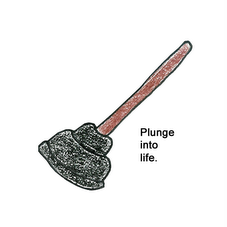Everywhere I look nowadays, I am bombarded with messages about foods and beverages providing "energy". What does this really mean anymore?
Some examples, specific marketing messages or general schools of thought:
-"Red Bull gives you wings."
-"For an afternoon boost, eat carrots."
-"Pasta is high in carbs which gives you energy."
-"Popeye gets his energy from spinach."
-"Powerbar Performance: The Original Energy Bar" is packed with "complex carbs" and "delivers sustained energy for a performance edge"
-Maine Munchies cites a Business 2.0 article that states: To get a fast-acting boost without a harsh sugar crash, try pairing sugar with protein. A prepackaged trail mix with both nuts and dried fruits is a perfect (and portable) high-energy combo
You get the idea. I think we're so obsessed with doing more and more every day on less and less sleep that we'll buy anything that claims to gives us more energy. While I realize that foods and drinks give me energy (anything with calories, technically, gives people energy), and that healthy foods are better for you since they keep you going and don't bog you down like fried foods, for example, but when I think of energy, I think of ADRENALINE. To me, Red Bull is not an energy drink... it's a caffeine drink.
I could eat the healthiest food around and drink a gallon of coffee before I go out to run, but I'm still bored and tired after a few blocks. That's why I don't run. I just don't get adrenaline-- "the runner's high" like some do.
However, put me on a basketball court in a fun competitive game, and my adrenaline will keep me going for hours. I'm into the game, I'm getting the juices flowing, I'm feeling the energy, the adrenaline.
And that's something that can't be wrapped up or bottled in a factory.
Well, not yet.

No comments:
Post a Comment